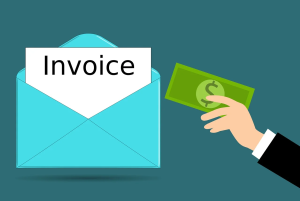Collection agency letters can impact debtors, depending on factors such as the debtor’s financial situation, emotional state, and knowledge of their rights and responsibilities. Here are some potential impacts:
- Stress and Anxiety: Receiving a letter from a collection agency can cause significant stress and anxiety for debtors. Many people may already be struggling financially, and knowing that a debt has reached the collections stage can exacerbate their emotional distress.
- Urgency to Pay: The letters can create a sense of urgency to pay off the debt. Some debtors might try to pay the debt as soon as possible to avoid further consequences, even if this means making financial sacrifices elsewhere.
- Impact on Credit Score: If a collection agency reports the debt to credit bureaus, it can negatively affect the debtor’s credit score. This makes it harder for them to get loans, credit cards, or sometimes even jobs in the future.
- Negotiations and Payments: Some debtors might choose to negotiate with the collection agency. They might try to settle the debt for a lesser amount, or establish a payment plan that allows them to pay off the debt over time.
- Seeking Legal Advice or Help: A collection letter may prompt some debtors to seek advice from a lawyer or a credit counseling service. They may also look into options like debt consolidation or bankruptcy.
- Avoidance or Ignorance: Some individuals may choose to ignore collection letters, either because they feel overwhelmed and don’t know how to deal with them, or because they believe the debt is not valid. Ignoring the letters can have further consequences, such as lawsuits and garnishments.
- Financial Planning and Budgeting: The receipt of a collection letter may serve as a wake-up call for some debtors to review their financial situation and start budgeting or planning to manage their debts more effectively.
- Disputing the Debt: In some cases, debtors may believe that the debt is not theirs or is inaccurate. In such cases, the collection letter may prompt them to dispute the debt with the collection agency or credit bureaus.
- Educational Impact: The experience of dealing with a collection agency may educate the debtor about the importance of managing credit and debt responsibly. It can serve as a learning experience that impacts future financial decisions.
- Relationship Strain: The stress and financial strain of dealing with collections can also impact relationships with family and friends. It may cause tension or conflict, especially if the debtor needs to rely on others for financial support.
It’s important for debtors to understand their rights under the Fair Debt Collection Practices Act (FDCPA) or any relevant laws in their country, as this can help protect them from harassment or unfair practices by collection agencies. Additionally, seeking advice from a reputable credit counseling service can also be beneficial for managing and resolving debts.

